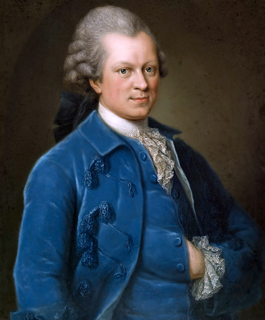A Quote by Samuel Johnson
To live without feeling or exciting sympathy, to be fortunate without adding to the felicity of others, or afflicted without tasting the balm of pity, is a state more gloomy than solitude; it is not retreat, but exclusion from mankind. Marriage has many pains, but celibacy has no pleasures.
Related Quotes
And do you know, do you know that mankind can live without the Englishman, it can live without Germany, it can live only too well without the Russian man, it can live without science, without bread, and it only cannot live without beauty, for then there would be nothing at all to do in the world! The whole secret is here, the whole of history is here. Science itself would not stand for a minute without beauty
We may live without poetry, music and art; We may live without conscience, and live without heart; We may live without friends; we may live without books; But civilized man cannot live without cooks. . . . He may live without books,-what is knowledge but grieving? He may live without hope,-what is hope but deceiving? He may live without love,-what is passion but pining? But where is the man that can live without dining?
Muscles without strength, friendship without trust, opinion without risk, change without aesthetics, age without values, food without nourishment, power without fairness, facts without rigor, degrees without erudition, militarism without fortitude, progress without civilization, complication without depth, fluency without content; these are the sins to remember.
Truth has no path. Truth is living and, therefore, changing. Awareness is without choice, without demand, without anxiety; in that state of mind, there is perception. To know oneself is to study oneself in action with another person. Awareness has no frontier; it is giving of your whole being, without exclusion.
The noblest relationship is marriage, that is, love. Its nobility resides in its altruism, the desire to serve another beyond all the pleasures of the relationship; and in its refusal ever to regard the other as a thing, an object, a utilizability. Sex is an exchange of pleasures, of needs; love is a giving without return. It is this giving without return, this helping without reward, this surplus of pure good, that identifies the uniqueness of man as well as the true nature of the true marriage. This is the quintessence the great alchemy of sex is for.
He was a foe without hate; a friend without treachery; a soldier without cruelty; a victor without oppression, and a victim without murmuring. He was a public officer without vices; a private citizen without wrong; a neighbor without reproach; a Christian without hypocrisy, and a man without guile. He was a Caesar, without his ambition; Frederick, without his tyranny; Napoleon, without his selfishness, and Washington, without his reward.





































